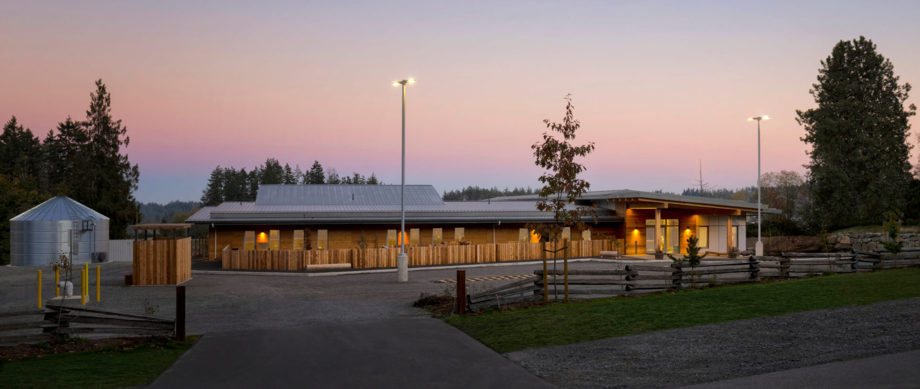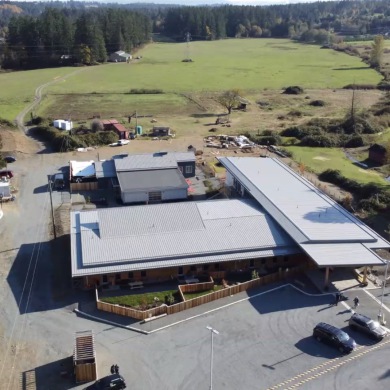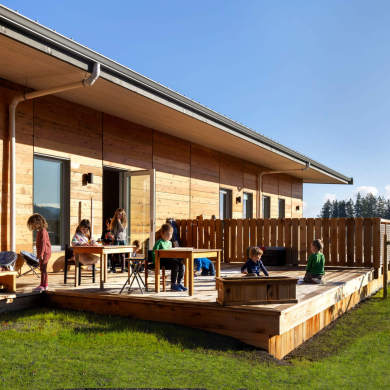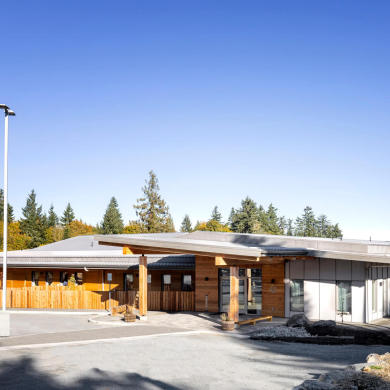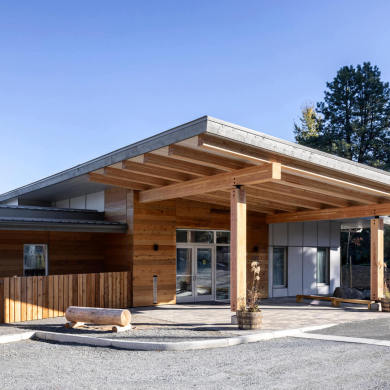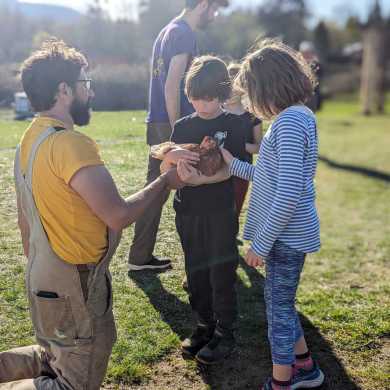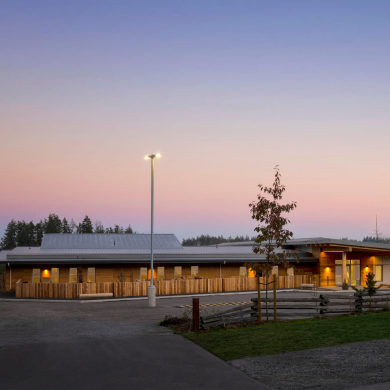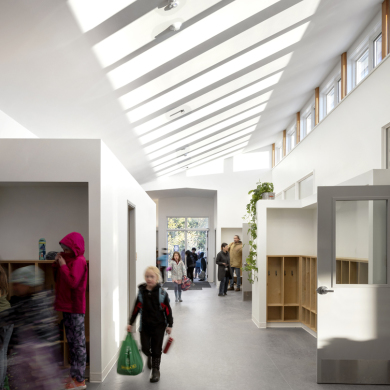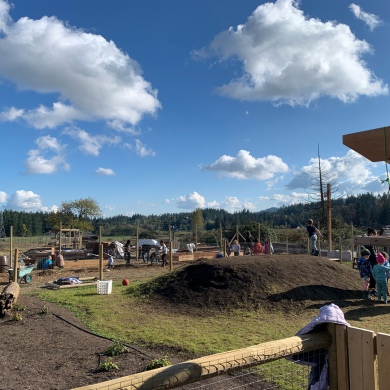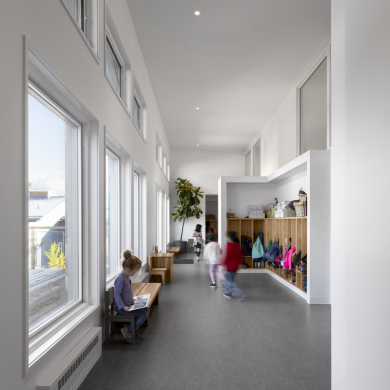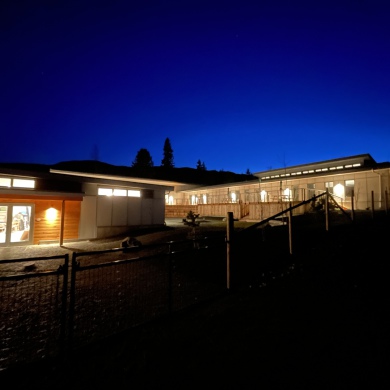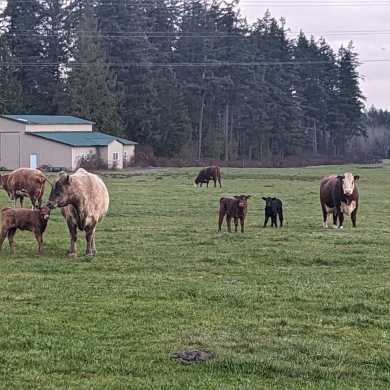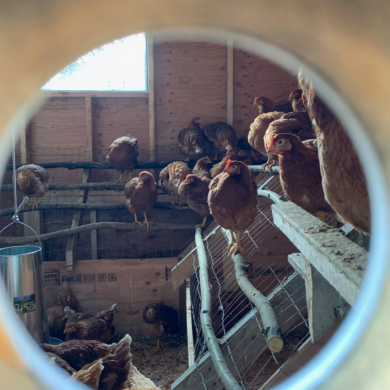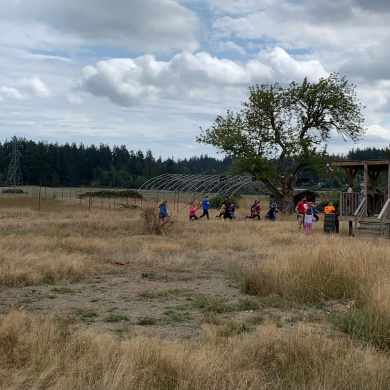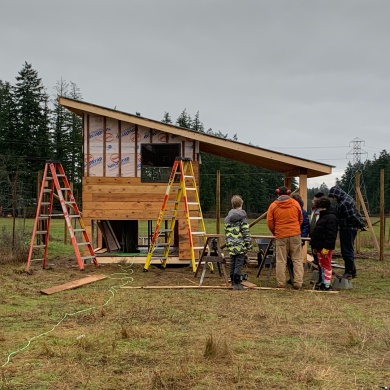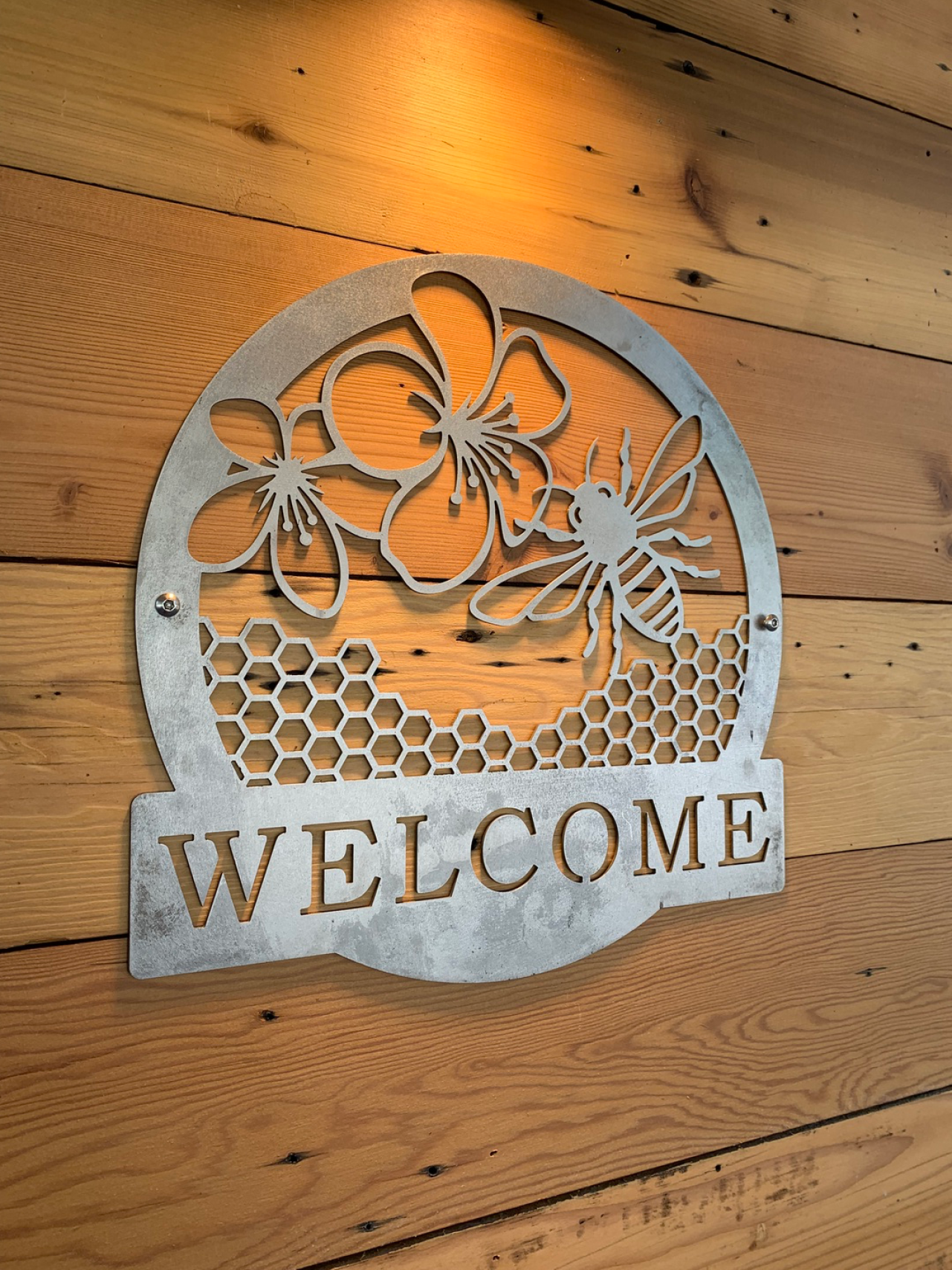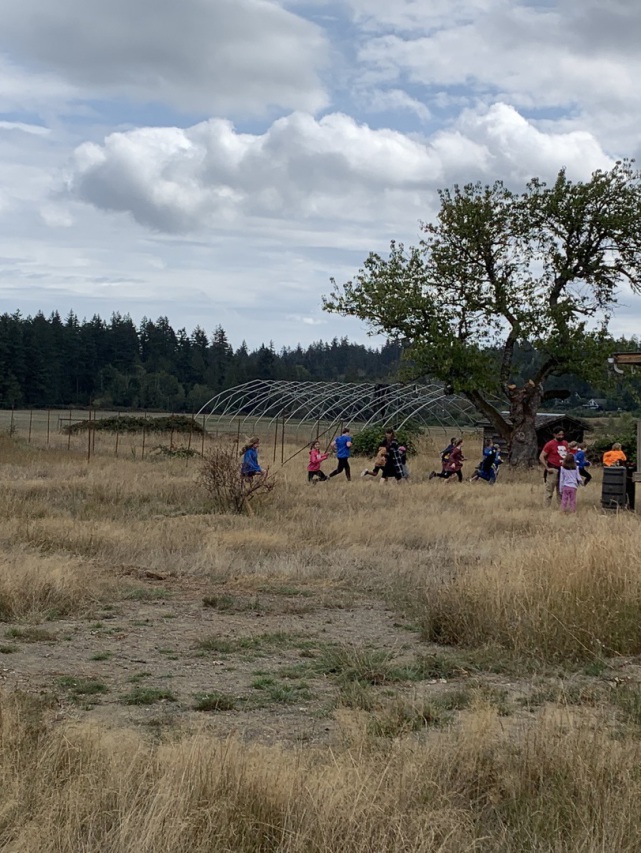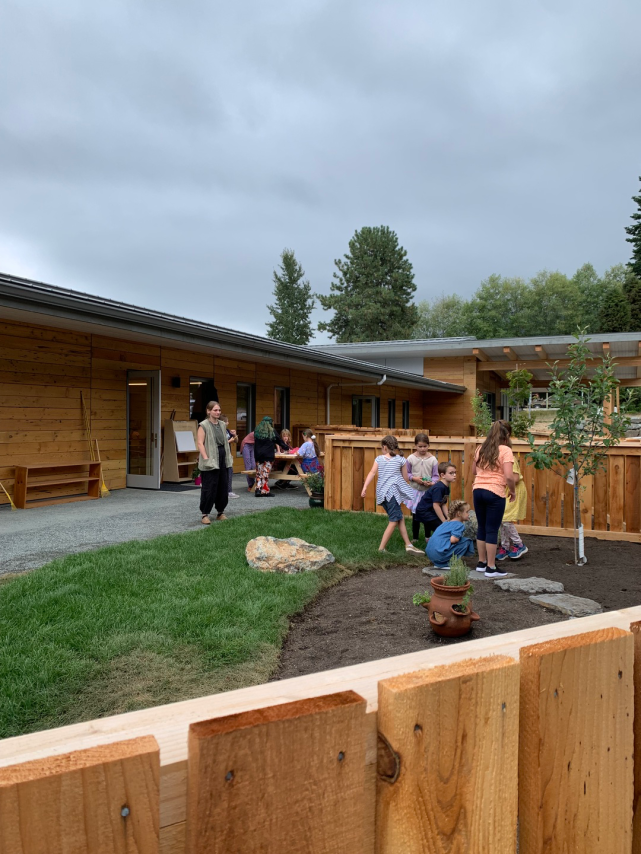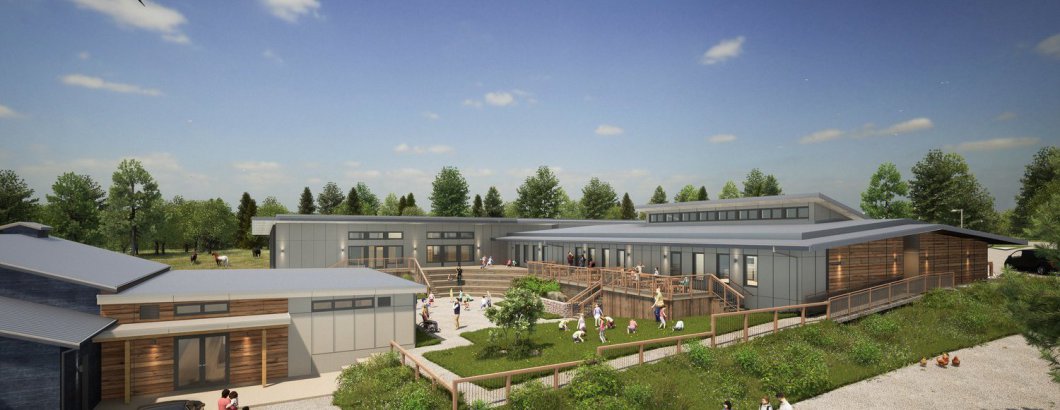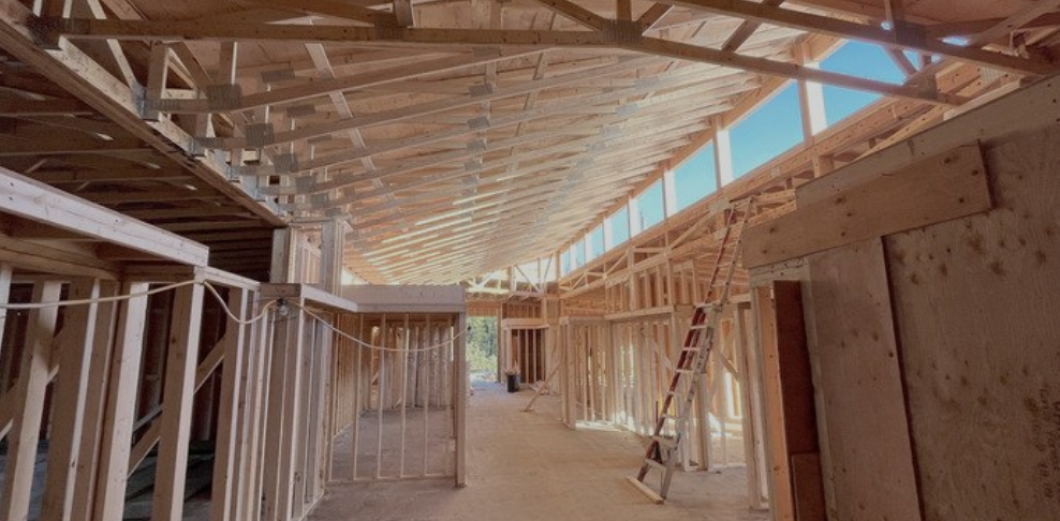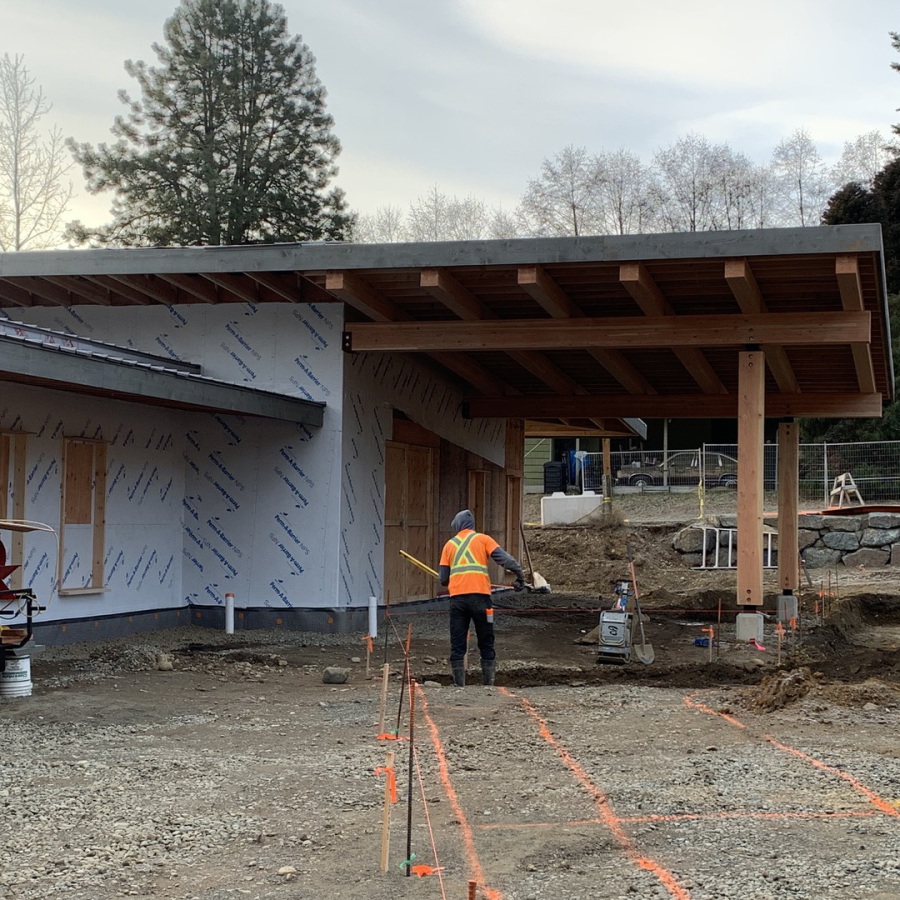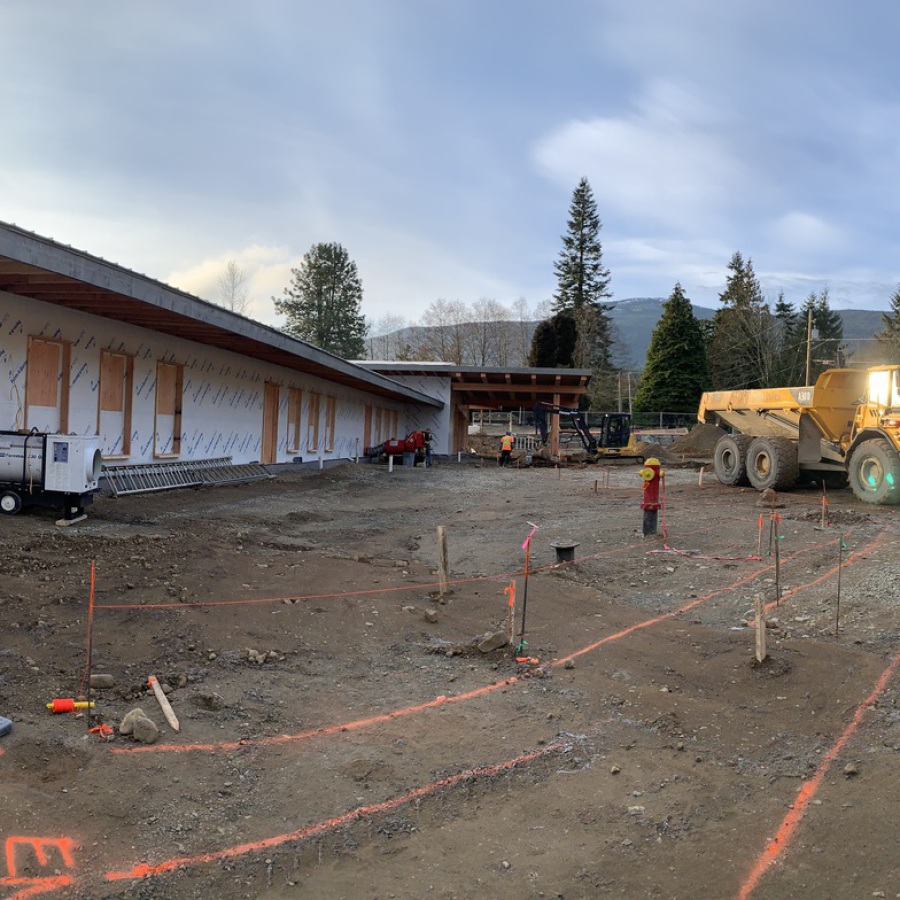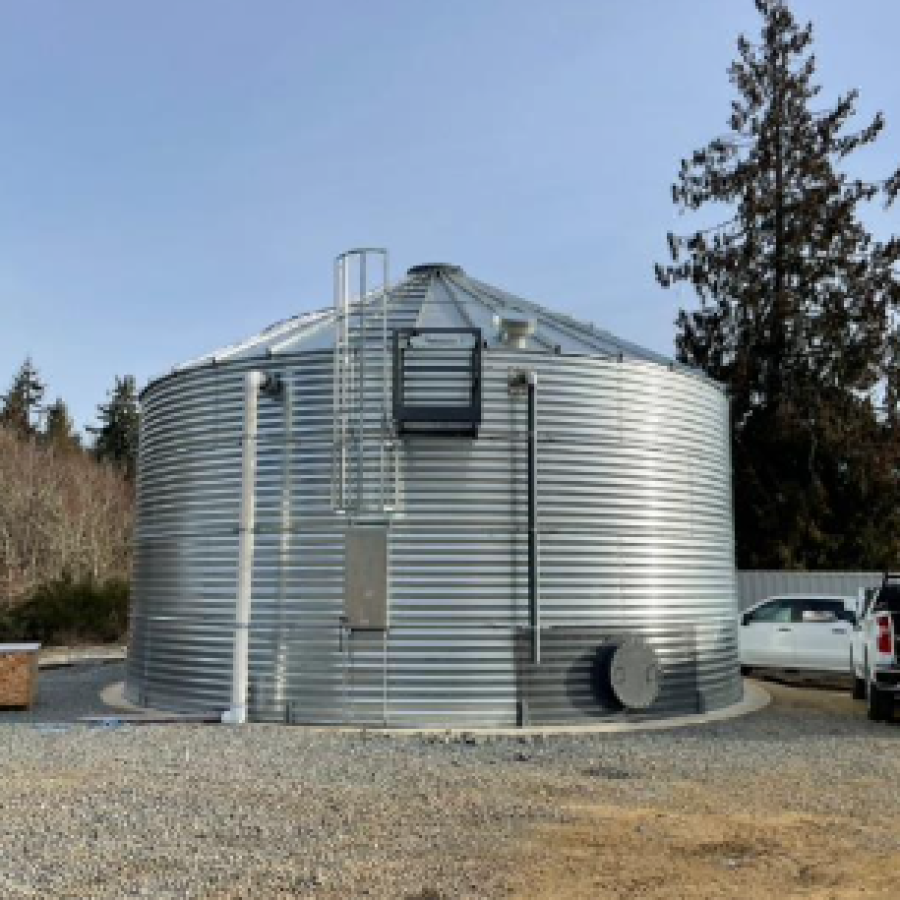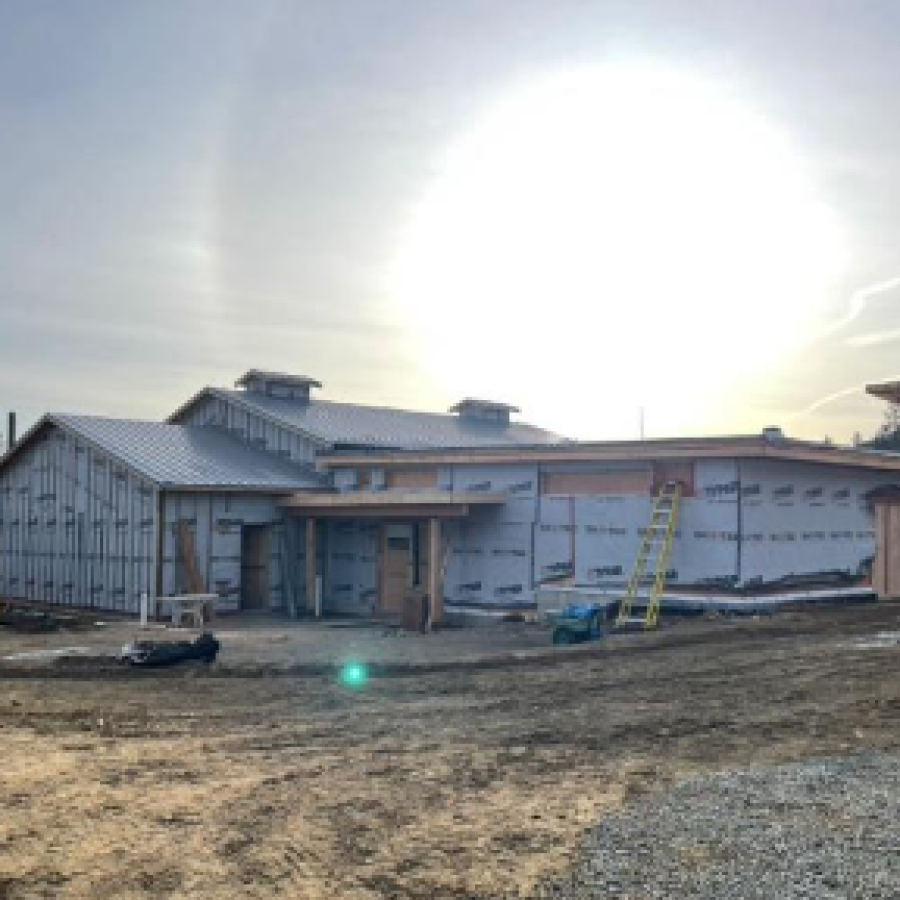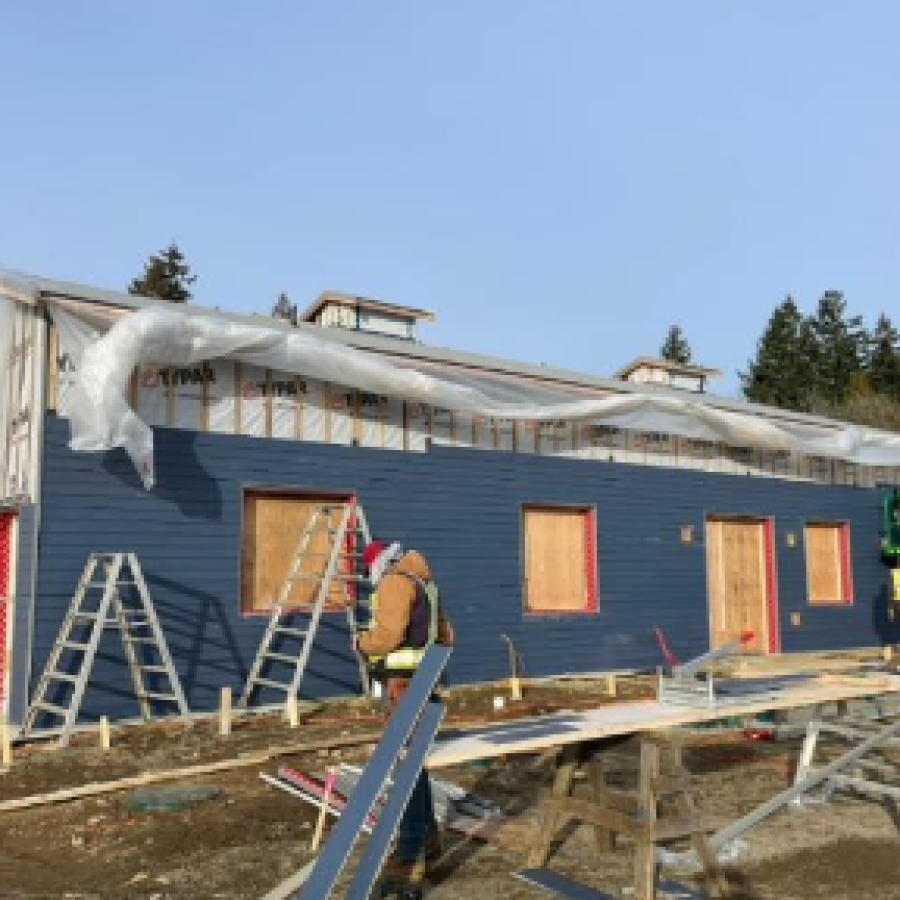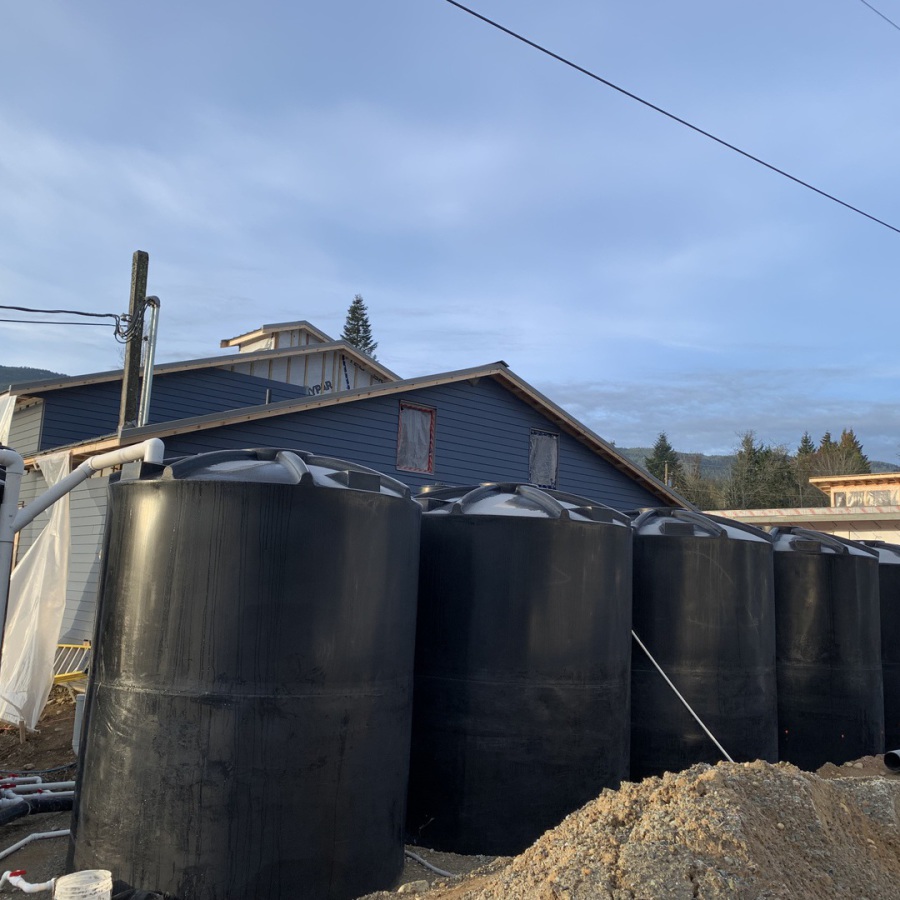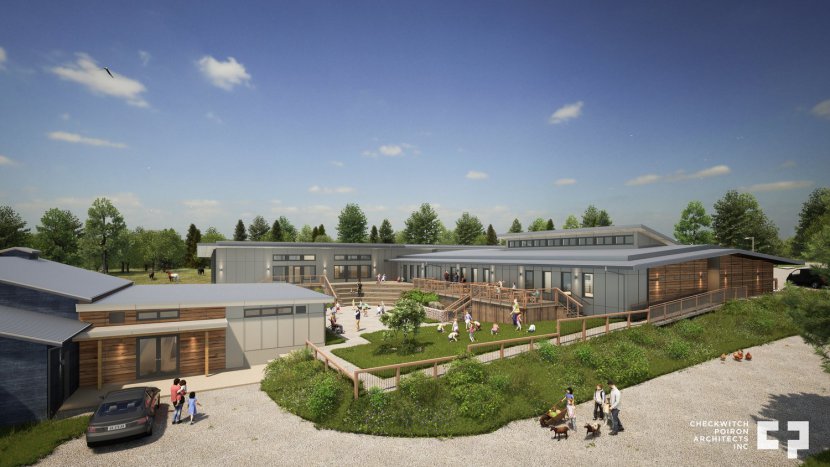What is a Montessori Farm school?
In Montessori education hands-on learning and providing experiences in the environment are central to our teaching method. At all levels from infancy through adolescence, Montessori students
apply their learning and build their skills using real-world activities and applications. The farm school concept grew from the later work of Dr. Maria Montessori while she developed the
Montessori adolescent program which she called the 'Erdkinder' program. In this concept, a school community is intentionally situated on a working farm, and acts as a microcosm of society providing
meaningful real-world ways for students to connect to their learning, to each other, to economy, and to society. The learning environments on the farm - both inside and outside - are specially
prepared for students to apply their academic and social work.
What does this mean in practice? It means that our students will grow and harvest crops in biology. They will use algebra to build gates and mend fences. Students will collect eggs in
science and snuggle goats for compassion building. Older students will continue to run a horse boarding business and sell vegetables to the community to practice financial management and
collaboration. They will cook with the produce they grow to learn practical life skills. Students can tend bees and care for livestock to learn about animal husbandry and history. Children can learn
to build bird houses and habitat structures to attract wildlife in their community-based environmental work. They can observe nature in Art class, and practice self care outside surrounded by nature.
Children can study the water temperature of McClure Creek as citizen scientists and Streamkeepers.... There are just so many opportunities on the land for children to explore and to follow
their curiosities and passions. All the while building a solid academic foundation and a useful set of applicable and versatile life skills.
Why is it important? Through activities like these our students will begin to deeply understand where their food comes from, and how the earth's systems are interconnected. They will see
first hand why it is so important for us to take care of nature, to protect our planet, and be kind to one another. With agriculture taking center stage at the DMS Farm School, the students
will know the importance of community and have compassion for all living things. They will learn that by taking personal responsibility and contributing their unique talents and skills, each
one of them has the ability, opportunity and responsibility to help make our world a better place for all. It sounds so idyllic and practical ... because it is.
The DMS Montessori Farm School Campus offers a sustainable farm-based children's learning campus, situated on a beautiful 20 acres, minutes from Nanaimo. It is made possible in part by a
generous grant from the Ministry of Children and Family Development's New Spaces Fund that enabled us to open more desperately needed child care spaces for Nanaimo and RDN area families.
Project history
In 2017 Discover Montessori Society entered into a long term lease on the property. Over the years we have been working with various provincial and municipal bodies to achieve the
permissions to further develop and design the school. The Agricultural Land Commission has approved the school to build upon on the existing gravel parking lot, and this enables the school to protect
and rejuvenate the important agricultural lands that surround it. We have sucessfully rezoned the parking lot area to allow for the school use. This protects the integrity of these agricultural
lands, and ensures they stay in the Agricultural Land Reserve forever.
Agriculture, farming and nature play a central role in learning
Our students, parents, and teachers have tended the land from afar. Groups of children have cleared invasive species, planted and sold pumpkins and veggies each season, picked rocks, mended
fences, and fixed up the stables with new paint. They have strengthened the paddocks and fixed up the riding ring. We have worked with the Mid-Island Vintage Tractor Club, who have kindly
plowed and disced the field for us, to prepare the market garden. Each year we sell the vegetables to the Tofino Culinary Guild. Our market garden production includes potatoes, cucumbers,
pumpkins, winter squash, pumpkins, ornamental squash, corn, kale, garlic, and other vegetable and perennial crops such as berries and herbs. One section of the garden has been put into a
buckwheat cover crop to attract pollinators and revive the soil. Chickens and goats have joined the community and we couldn't be happier!
Sustainability
Being light on the land and protecting our natural resources is very important to Discover Montessori School. We don't just talk the talk, we walk it, and we live it. As such, we
have designed the school building with the environment at the forefront of every decision we make.
We have designed to a CaGBC Zero Carbon
Standard and are the first zero carbon school to be built in the region. This certification requires that we evaluate and measure our impact and carbon footprint at every stage of the
development, from the design through to the subsequent operation and lifecycle analysis of the building, including the way in which we collect and distribute water.
We hope that the DMS Farm School Campus will become an example of how an environmentally sustainable campus can be a creative, inviting, inspiring and wondrous space for children to learn.
We want to show that a zero carbon approach can be affordable, replicable, and sustainable for generations to come.
Environmental features
The DMS Farm School plan involved renovating the existing building and constructing a new building with features that meet our environmental goals. To meet our environmental objectives we
have for example, chosen not to use to a concrete slab foundation in order to reduce the embodied & operational carbon, as well as to allow rain water to flow naturally through the earth.
We are building in a way that reduces construction waste and provides removability. Our landscape plan is drought tolerant and makes use of recycled materials that would otherwise end up
in the land-fill. All water fixtures will be low flow. Water will be harvested and stored for future irrigation use. International Dark Sky Association approved exterior lighting will be
used. Heating and cooling will be energy efficient and renewable. The lands will be regenerated, re-planted, and revegetated. Agriculture will be expanded with an eye to permaculture
and protection. The creek and riparian zones will be improved, invasive species removed, and wildlife habitat will be restored and expanded.
The landscape design plan is a key feature of the project. It is being designed by a team of local landscape architects who are passionate about environmental sustainability and education.
Participating in a 5 year UBC study on children and outdoor play, the design team has a deep understanding of how the prepared outdoor environment can shape the child's interactions and experiences
outside. Seven key elements will be used to create interesting and developmentally appropriate natural outdoor classrooms and play spaces: character, context, connectivity, change, chance,
clarity and challenge. Our outdoor spaces will be full of wonder and learning, and will be buzzing with happy children, insects, and wildlife!
